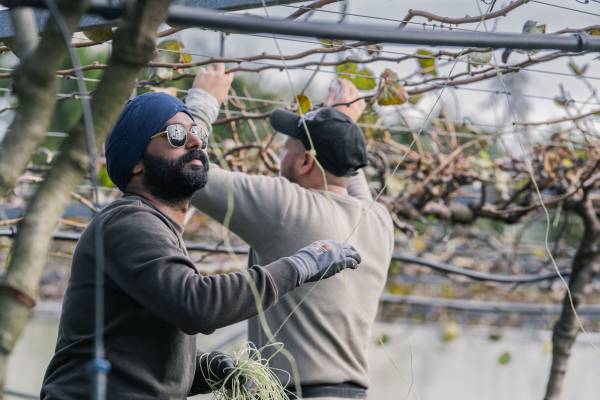Quick takes
NZX Director Independence Review update: implications for directors
Changes announced will enhance robustness of governance practices for New Zealand-listed issuers.

The hidden issue of modern slavery is coming out into the open and Tania Donaldson, Manager of Employment System Guidance & Engagement at the Ministry of Business, Innovation & Employment (MBIE), says this is positive for businesses.
“In looking for worker exploitation, I think you should expect to find problems and be pleased if you do because that’s how you can resolve them, and talking about it normalises getting it right.”

Tania Donaldson, MBIE
Donaldson’s team is responsible for working with labour inspectors and employment mediators, helping organisations put systems in place to look for – and prevent – the exploitation of workers.
“We know there’s exploitation of workers going on in big numbers around the world. The latest Walk Free Global Slavery Index shows something like 50 million people are in modern slavery conditions and an estimated 8,000 people in New Zealand.”
But because people are afraid to speak out, or don’t have a full understanding of their rights, employers are getting away with it.
“For many organisations, it’s not so much that they’ve had their head in the sand, but they just haven’t seen a business risk, so they haven’t felt like they had issues.”

Image credit: MBIE
From a board perspective, being removed from operational matters and not having a direct eye into what is happening on the ground isn’t a good enough excuse to avoid looking for worker exploitation, she says.
“You actually have to put in place systems to look for it, to call it out and to mitigate it – ignorance isn’t a defence anymore,” Donaldson says.
So, what role can boards play in combating circumstances where workers are being exploited?
“We see vulnerable people – those who are low skilled, in low-paid jobs – at risk of accepting conditions that are not reasonable because they don’t think they’ll get any other employment, so they take what they can get. You should never have to pay to get a job in New Zealand, it’s just not part of our system.
“We hear about people working excessively long periods either across the course of a day, or extended periods without any days off, weeks and weeks on end without a day off for rest and recreation, which is unacceptable.
“Where we look, we find issues ranging from low level employment standards breaches right through to egregious breaches, but generally speaking we find issues where we look for issues,” she says.
The need for a board to examine what is happening throughout an organisation’s supply chain starts with asking the question: Who’s in our supply chain and where are our greatest risks?
“Their vision, mission, values, and codes of conduct should show how they value workers, and expect workers to be treated, and these expectations should be reflected in the key documents throughout their entire system.”

Image credit: MBIE
Donaldson warns that social practice audits alone are not enough. Employees are important in capturing information, and she suggests putting systems in place, such as whistleblowing or worker voice tools, that directly feed into the process to call exploitation out.
She also reinforces the importance of not ‘setting and forgetting’.
If exploitation is found, the best way forward is to remediate and rectify it, then learn from what has gone wrong. This includes sharing your organisation’s story about how it was found and corrected, which reinforces to stakeholders the importance you place on accountability and a desire to make things right.
It might come at a cost, but there are greater benefits, including market access.
“The world increasingly cares about, and pays attention to, the exploitation of workers. Your ability to trade will be reduced if you don’t show you’re doing the right thing,” Donaldson says.
With different sized businesses and a variety of business models, sometimes identifying risk can be tricky. Take for instance, family-run businesses not paying a fair wage ‘because it’s just family’.
“We want our businesses to not be anti-competitive. That’s why we have employment standards to ensure people are getting a base level of income that’s acceptable for the work they are doing, and that businesses are able to compete on a level playing field. We can’t rely on saying, ‘Well it’s better than it was back home’. It is not okay and that is not the New Zealand way.
“The bottom line is that we need to prioritise people. It’s the whakataukī, ‘what is the most important thing in the world? He tangata, he tangata, he tangata . . . make people matter.”
For further information, Employment New Zealand have guidance for directors available here.